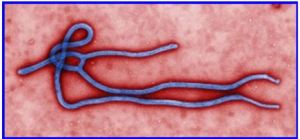Current status of Ebola Vaccine research
Experimental Ebola vaccine tested on thousands of people and might help shut down the waning epidemic in West Africa. Merck, Johnson & Johnson and GlaxoSmithKline already have their candidates in mid-stage trials. Novavax completed Phase I trial.
Merck
Merck stated that its investigational Ebola vaccine candidate, rVSV-ZEBOV, was found to have 100 percent efficacy based on an interim data analysis from a Phase 3 ring vaccination trial in Guinea. The authors report that vaccine efficacy was 100 percent (95% confidence interval: 74.7 – 100%; p=0.0036) following vaccination with a single dose of the rVSV-ZEBOV vaccine.
In late 2014, when the current Ebola outbreak was at its most severe, Merck was licensed rVSV-ZEBOV from NewLink Genetics Corporation. Vaccinated individuals developed antibodies against the Ebola virus, which would help protect against future infection. It appeared that all vaccinated individuals were protected against Ebola virus infection within 6 to 10 days of vaccination. To date, the rVSV-ZEBOV vaccine has been administered to more than 9,000 people in phase 1, 2 and 3 clinical trials. The significance and durability of this immune response have not been determined.
GSK and J&J/Bavarian Nordic
GlaxoSmithKline recently reported positive results from the Liberian Phase II trial of its candidate and that it may advance to Phase III. Johnson & Johnson announced in March that it was ready to start trialing its vaccine candidate in Ghana, Tanzania and Kenya.
Novavax
Novavax took its Ebola vaccine candidate to Australia for a Phase I trial. The company reported positive top-line results from the 230-person trial. The ebolavirus glycoprotein recombinant nanoparticle vaccine, or Ebola GP vaccine for short, was well-tolerated and provoked high ebolavirus antibody responses, said Dr. Greg Glenn, Novavax’s research chief, in a statement.
“We’re not at the same stage as some of the other developers … but what we have is an improvement over what’s already being tested,” Glenn said, as quoted by Reuters. If all goes well, the vaccine could be market-ready in two to three years, he said.
Health workers in Guinea check the blood pressure and other vital signs of a man about 30 minutes after he was given the trial Ebola vaccine. Photo by WHO

